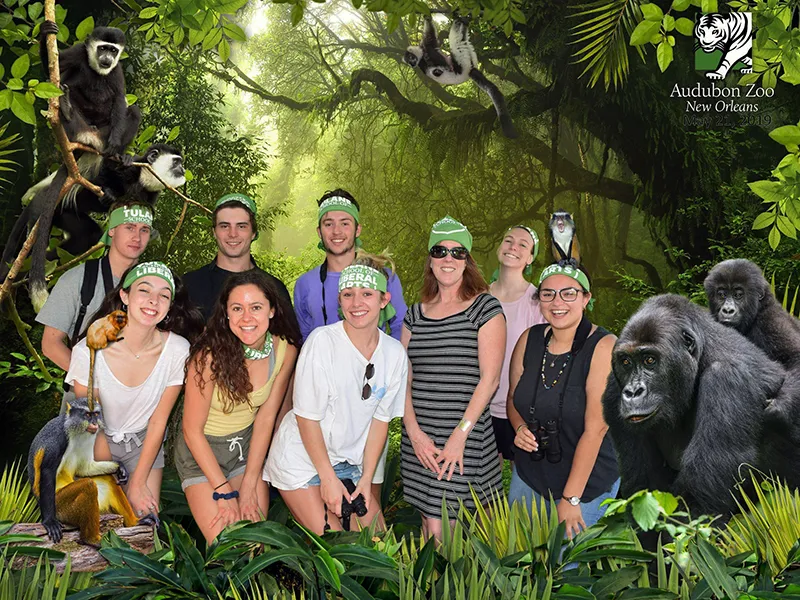
Since the first time I saw spider monkeys at the zoo as a child, I knew I wanted to study primates. Years later, I was able to study that same species through the first "Primate Behavior and Ecology" course taught by Dr. Katharine Jack of the School of Liberal Arts Department of Anthropology. The Maymester course provided an introduction to the study of primates and examined the biology, ecology, and behavior of living nonhuman primates.
A typical course day was comprised of multiple activities including lectures, discussions, and trips to the Audubon Zoo. Our readings and discussions covered a variety of subjects, such as primate mating and foraging strategies, ethics in fieldwork, and the idea of animal personalities. The zoo visits allowed us to build on these main principles and collect focal animal sampling data on different types of primates housed at the zoo, including spider monkeys, black and white colobus monkeys, gorillas, black and white ruffed lemurs, and howler monkeys. After spending three hours observing the primates and writing down their behavior as it occurred, we presented our findings to the class. Part of the final project was to research and suggest improvements for the signs at the zoo, and many presentations focused on ways to make the exhibits more interactive, such as an app to edit pictures of the resident lemurs and share them to social media.
Our class was comprised of eight students from a diverse set of majors, including cultural and biological anthropology, history, environmental biology, and international development. Regardless of whether or not each student planned to study primates in the future, the skills we gained through readings and discussion, as well as data collection and analysis, were beneficial to all of us—these skills are broadly applicable to any job that entails research or environmental issues, whether in the sciences or humanities. The course not only provided us with extensive knowledge of the fundamentals of primatology, but also emphasized the importance of conservation.
As an anthropology major with a focus in biological anthropology, studying primates has always been my principal interest. Being able to observe the animals in such close proximity allowed for plenty of detailed observations, which are more difficult to obtain outside of captive settings. Although I plan to conduct most of my future primate studies in the wild, this two-week course offered intensive and invaluable experience in primatology.
Sophie Lieber (SLA ’21) is a junior at Tulane University from Bethesda, Maryland. She is double majoring in studio art and anthropology, with her primary area of interest being primatology.
The Maymester session, offered through Tulane's Summer School programing, begins immediately after the spring semester and offers innovative and intensive academic experiences. Material is covered quickly over just 10 days, but the longer class periods allow for in-depth discussion. The classes are smaller, more interactive and focused, which leads to a greater sense of community in the classroom. The Maymester courses are open to Tulane students as well as visiting students.

